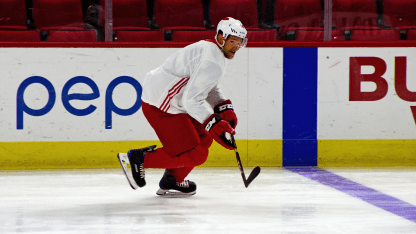"Selfishly, I was really upset when we stopped playing. I had just come back, I played catch-up and I finally felt like I was where I wanted to be. Got abruptly halted, and now everybody's in the same situation," he said. "Leadership is going to be a huge key for these teams coming back, and the best leaders, I believe, will have the best success."

